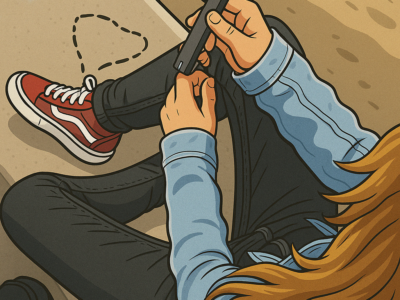Heroin is a highly addictive opioid (manufactured from the resin of the poppy plant) which is sold illegally as a recreational drug. When users are first experimenting, it is possible for them to function normally without the need for the drug. After a while (the time period varies in each individual) they become unexpectedly addicted.
There are two forms of heroin that are available. The most popular is as a powder which can be from pure white to a dark brown in colour, depending on what it is mixed with during the manufacturing process. The other form is black tar heroin, which has the colour and consistency of regular tar, and is crudely processed and very impure.
The effects of the drug can be obtained in three ways: smoked, snorted or mixed with water and injected. Most users do not start injecting the substance until they have actually become addicted, and then this is the method of choice as they now need to use a more concentrated dose.People that inject themselves with the drug also have an increased risk of getting other diseases, because of the possibility of using infected needles. Black tar heroin is dissolved and users inject it into their muscles, veins or under the skin.
Heroin acts as a pain inhibitor to the body. The substance dulls all the senses, both physically and emotionally, allowing the user to not only feel numb but also to forget their problems while they are under the influence. An overdose of heroin occurs when the body can no longer handle the amount of the substance that has been put into it.
Whenever a user becomes addicted, they have to gradually increase the dosage in order to be able to achieve the required high. It is not always possible to judge the larger amount correctly and this can result in an overdose.
Another reason that is responsible for many heroin overdoses is the fact that there is no way to know the quality of the substance you have received, and sometimes this may be very pure. When this is used in the usual amount there is an increase in the chances of an overdose.
There are certain recognisable symptoms of a heroin overdose which can occur very soon after use, sometimes within minutes. The most common ones are:
- Difficulty breathing
- Drop in blood pressure
- Bluish tint visible on the mouth, skin and nails
- Pupils contract
- Confusion
- Stomach cramps
- Constipation
- Severe drowsiness
- Muscle Spasms
- Lower Heart Rate
- Dry mouth
- Coma
In a worst case scenario a heroin overdose can lead to death. It is imperative that anybody suspected of overdosing be taken to a hospital as soon as possible.
Many people have been able to give up the drug, but completely leaving the addiction behind is not possible. If a previous user tries it again, no matter the amount of time that has passed since they last used,they will still get the familiar craving and go through withdrawal symptoms even after relapsingonly one time. The possible consequences of using heroine far outweigh the benefits, showing that it really is best to avoid experimenting with it in the first place.


